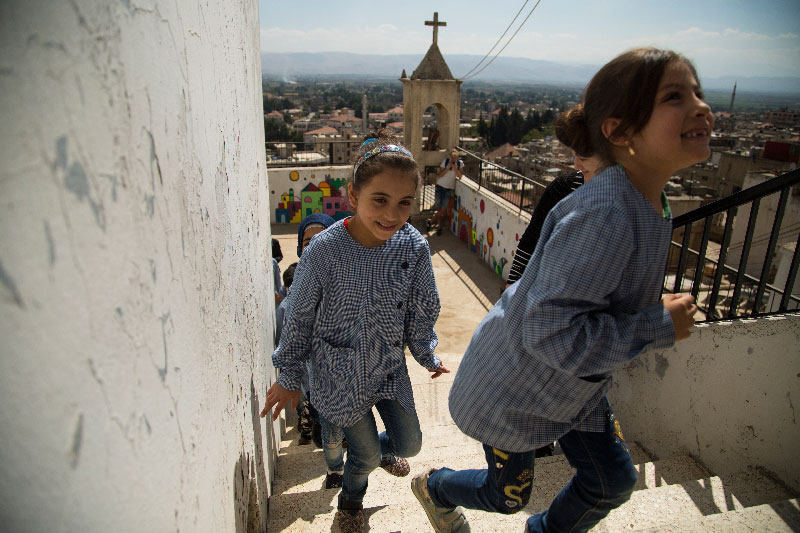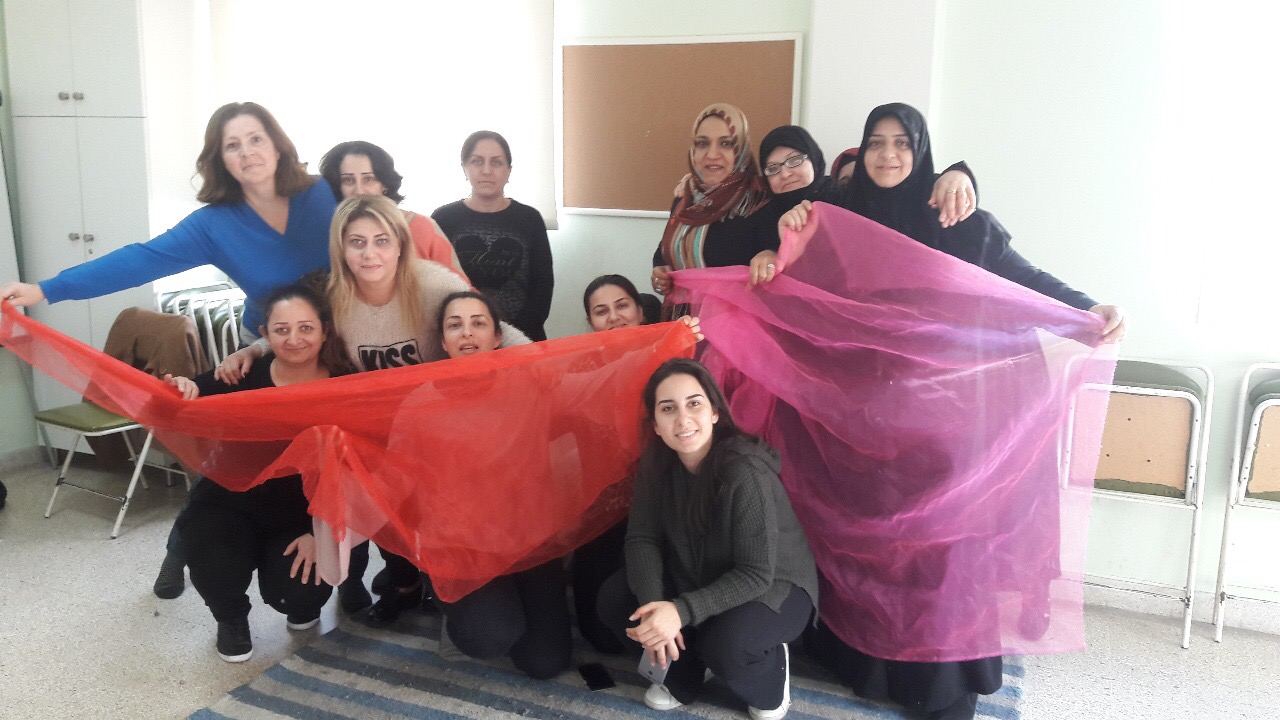Pray with Lebanon on Sunday, January 7, 2018
Lectionary Selection: Mark 1:4-11
Prayers for Lebanon:
 Gracious and loving God,
Gracious and loving God,
In this holy season of renewal and rebirth, may we be made new through reflection and repentance.
In this holy season of hope for a better tomorrow, may we be charged with the fire of the Holy Spirit and resolved to be active participants in building a peaceful world.
In this holy season of your love made real in our world through the birth of a tiny babe in Bethlehem, may we too engage in the difficult practice of loving each other, putting aside our regard for creed, nationality, politics, race, class or gender.
May we have the wisdom needed to make difficult choices and the courage to risk our own comfort or interests for the sake of realizing God’s vision for our world. May we always remember that we are one body in Christ. May we relish the role that you call us to play.
We begin this new year knowing that with it will come trials and obstacles, sadness and disappointments. As we move through it, day by day, help us recognize and celebrate the joys that will come as well. Give us the strength to carry on with the work you have called us to do. To love fiercely, to hope undauntedly, to act for peace always, and demand justice for all your people.
Mission Stewardship Moment from Lebanon:
 Real coexistence among diverse groups of people is a tall order, especially in the Middle East. Despite its small size, Lebanon is playing host to around 1.5 million Syrian refugees and between 400,000 and 500,000 Palestinian refugees. For a country only half the size of the state of New Jersey, with about 4 million citizens, that’s a lot of new people to try and integrate. It’s also important to note the 18 religious confessions present in Lebanon and the important role religion plays in forming identity here. Long point made short, Lebanon is a country with both a long history of coexistence among diverse peoples and a long history of conflicts arising from clashes between peoples. Peaceful coexistence is not on the list of “nice to have” priorities here. It is of existential importance to everyone.
Real coexistence among diverse groups of people is a tall order, especially in the Middle East. Despite its small size, Lebanon is playing host to around 1.5 million Syrian refugees and between 400,000 and 500,000 Palestinian refugees. For a country only half the size of the state of New Jersey, with about 4 million citizens, that’s a lot of new people to try and integrate. It’s also important to note the 18 religious confessions present in Lebanon and the important role religion plays in forming identity here. Long point made short, Lebanon is a country with both a long history of coexistence among diverse peoples and a long history of conflicts arising from clashes between peoples. Peaceful coexistence is not on the list of “nice to have” priorities here. It is of existential importance to everyone.
Most of what we read in the news about Lebanon focuses only on the conflict side of the coin. The examples of people working hard to not only tolerate one another, but coexist in a peaceful way are often neglected. During the past year with the Middle East Council of Churches (MECC), it has been encouraging to see all the ways that Christians and Muslims, Christians and Christians, or Lebanese and Syrians are trying to reconcile their differences and find ways of living together. Today I’d like to share a couple of stories which give me hope for a just future in Lebanon and the Middle East, and which prove that small actions add up when it comes to peace building.
The first is the story of an education center in the Beqaa Valley which is run by the National Evangelical Synod of Syria and Lebanon and supported by MECC. This center was formed to provide education for Syrian refugee children who were not able to enter the normal school system in Lebanon. The students are almost all Muslim and taught by an all Christian staff. Yet, the school has been enormously successful and the teachers have found ways to teach and contextualize values shared by both the Bible and Quran. This school only serves 100 children each year — it is a drop in the bucket compared to the need — but they are doing so much more than simply teaching those 100 kids to read and do mathematics. They’re providing an opportunity to see that religious coexistence, respect for and acceptance of the other are possible and positive for our communities.
The second story takes us to a suburb of Beirut where MECC runs a community health center (Our Lady Dispensary). This center serves Syrian refugee families, Iraqi refugee families, and vulnerable Lebanese families. Up until recently, most of the programs were segregated along the lines of nationality. The Syrian refugees (who are predominantly Sunni Muslim) and the Iraqi refugees (who are predominantly Christian) weren’t particularly interested in integrated sessions. But, the staff at OLD decided to force the issue for one program and the result was that the women who participated not only received the psychosocial benefit from the program’s counselling design, but they also worked through tensions between two refugee communities competing for resources and assistance with the UN and resettlement agencies.
These are just two small ways that MECC is working towards building peace and coexistence inside the borders of Lebanon. MECC Is just one organization and a small one at that. Sometimes it feels like even adding up all our efforts and programs, we are so far from making a substantial impact. But, then we also remember that very small things — like a mustard seed — can grow into bigger things with faith and commitment. If we all do our part, surely the whole impact of our efforts must be greater than the sum of its parts.
(Prayer and Mission Moment by Bethany Waggoner)
Mission Partners in Lebanon:
- Forum for Development, Culture, and Dialogue (FDCD)
- Haigazian University
- National Evangelical Church of Beirut
- Near East School of Theology
- Union of Armenian Evangelical Churches in the Near East
More information on Lebanon: http://www.globalministries.org/lebanon
Global Ministries Mission Coworker in Lebanon:
Bethany Waggoner serves as a Long-term Volunteer with the Middle East Council of Churches in Beirut, Lebanon. Her appointment is made possible by your gifts to Disciples Mission Fund, Our Church’s Wider Mission, and your special gifts.
